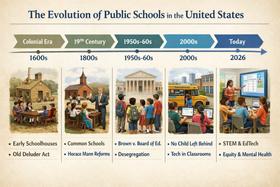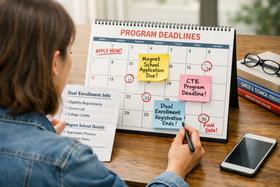Top Rankings
Timberlane Regional School District ranks among the top 20% of public school district in New Hampshire for:
Category
Attribute
Graduation Rate
Highest graduation rate (Top 10%)
Community Size
Largest student body (number of students) (Top 1%)
For the 2026 school year, there are 5 public elementary schools serving 2,187 students in Timberlane Regional School District. This district's average elementary testing ranking is 6/10, which is in the top 50% of public elementary schools in New Hampshire.
Public Elementary Schools in Timberlane Regional School District have an average math proficiency score of 45% (versus the New Hampshire public elementary school average of 43%), and reading proficiency score of 53% (versus the 49% statewide average).
Minority enrollment is 13% of the student body (majority Hispanic), which is less than the New Hampshire public elementary school average of 18% (majority Hispanic).
Overview
This School District
This State (NH)
# Schools
7 Schools
366 Schools
# Students
3,296 Students
107,082 Students
# Teachers
292 Teachers
9,515 Teachers
Student-Teacher Ratio
11:1
11:1
Student By Grade
District Rank
Timberlane Regional School District, which is ranked within the top 50% of all 188 school districts in New Hampshire (based off of combined math and reading proficiency testing data) for the 2022-2023 school year.
The school district's graduation rate of 94% has stayed relatively flat over five school years.
Overall District Rank
#81 out of 189 school districts
(Top 50%)
(Top 50%)
Math Test Scores (% Proficient)
43%
42%
Reading/Language Arts Test Scores (% Proficient)
54%
51%
Science Test Scores (% Proficient)
31%
36%
Graduation Rate
94%
88%
Students by Ethnicity:
Diversity Score
0.23
0.32
% American Indian
n/a
n/a
% Asian
1%
3%
% Hispanic
5%
8%
% Black
1%
2%
% White
88%
82%
% Hawaiian
n/a
n/a
% Two or more races
5%
5%
All Ethnic Groups
District Revenue and Spending
The revenue/student of $21,941 in this school district is less than the state median of $22,103. The school district revenue/student has grown by 8% over four school years.
The school district's spending/student of $21,414 is higher than the state median of $21,321. The school district spending/student has grown by 6% over four school years.
Total Revenue
$72 MM
$3,646 MM
Spending
$71 MM
$3,517 MM
Revenue / Student
$21,941
$22,103
Spending / Student
$21,414
$21,321
Best Timberlane Regional School District Public Elementary Schools (2026)
School
(Math and Reading Proficiency)
(Math and Reading Proficiency)
Location
Quick Facts
Rank: #11.
Atkinson Academy
(Math: 60-64% | Reading: 65-69%)
Rank:
Rank:
9/
Top 20%10
17 Academy Ave.
Atkinson, NH 03811
(603) 362-5521
Atkinson, NH 03811
(603) 362-5521
Gr: PK-5 | 385 students Student-teacher ratio: 14:1 Minority enrollment: 15%
Rank: #22.
Danville Elementary School
(Math: 55-59% | Reading: 55-59%)
Rank:
Rank:
8/
Top 30%10
23 School St.
Danville, NH 03819
(603) 382-5554
Danville, NH 03819
(603) 382-5554
Gr: PK-5 | 275 students Student-teacher ratio: 11:1 Minority enrollment: 11%
Rank: #33.
Sandown North Elementary School
(Math: 50-54% | Reading: 45-49%)
Rank:
Rank:
7/
Top 50%10
23 Stagecoach Rd.
Sandown, NH 03873
(603) 887-8505
Sandown, NH 03873
(603) 887-8505
Gr: 1-5 | 323 students Student-teacher ratio: 11:1 Minority enrollment: 10%
Rank: #44.
Pollard Elementary School
(Math: 44% | Reading: 51%)
Rank:
Rank:
6/
Top 50%10
120 Main St.
Plaistow, NH 03865
(603) 382-7146
Plaistow, NH 03865
(603) 382-7146
Gr: PK-5 | 473 students Student-teacher ratio: 12:1 Minority enrollment: 18%
Rank: #55.
Timberlane Regional Middle School
(Math: 37% | Reading: 51%)
Rank:
Rank:
5/
Bottom 50%10
44 Greenough Rd.
Plaistow, NH 03865
(603) 382-7131
Plaistow, NH 03865
(603) 382-7131
Gr: 6-8 | 731 students Student-teacher ratio: 10:1 Minority enrollment: 12%
Recent Articles

Do We Still Need Libraries in Public Schools in 2026
An updated look at the role of public school libraries in 2026, their impact on literacy, equity, and digital learning, and why they remain essential today.

The History of Public Schools in the United States
Explore the history of public schools in the U.S., from colonial roots to 2026 reforms shaping equity, funding, and classroom innovation.

Special-Program Registration Deadlines Explained
Learn what to know about special-program registration deadlines for magnet, CTE, and dual-enrollment options in public schools.





